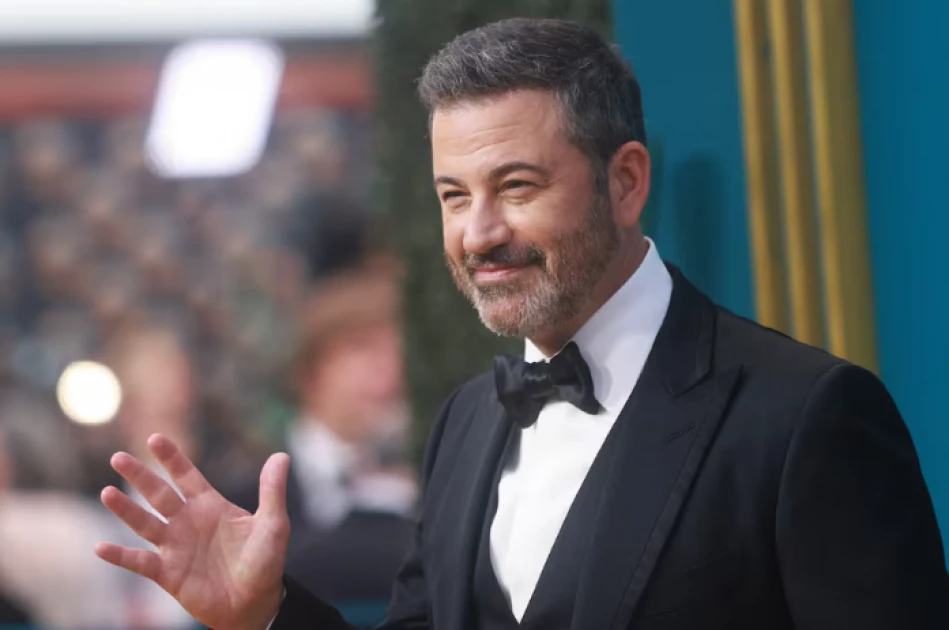Disney’s Kimmel suspension shows Trump’s increasing grip over media

Jimmy Kimmel arrives at the 74th Primetime Emmy Awards in Los Angeles. REUTERS

Audio By Vocalize
The move, which came after Kimmel's remarks about the accused killer of slain conservative activist Charlie Kirk, has jolted the U.S. media and entertainment industries and intensified free-speech fears as the Trump-appointed FCC chair Brendan Carr threatened to revoke broadcast licenses from stations that carry what he called "garbage."
Major media and tech companies are now controlled by Trump supporters or billionaire business leaders who lined up behind Trump during his inauguration, donated to his inaugural fund, or visited the White House bearing gifts. Billionaire GOP donor Larry Ellison’s Oracle is part of a consortium of investors, with the inside track to take control of the U.S. operations of the video-sharing platform TikTok.
This week, the Trump administration announced it had agreed to a framework for a deal with China that would allow the sale of TikTok's U.S. assets to continue to operate in the U.S.
Companies such as CBS, Meta Platforms, and the editorial pages of the Washington Post and the Los Angeles Times have made editorial or operational changes following Trump’s re-election in ways that lay the groundwork for less adversarial coverage of the president.
“There is a continued lurch to the right throughout much of our major media in the United States right now,” said Victor Pickard, professor of media policy and political economy at the Annenberg School of Communication at University of Pennsylvania. “I expect to see more of this to come. There's no countervailing force against it.”
The decision Wednesday night is the second time since Trump’s re-election that ABC parent company Walt Disney has taken action in response to on-air comments. In December, ABC News agreed to give $15 million to Trump’s presidential library to settle a lawsuit Trump had filed over remarks that anchor George Stephanopoulos made involving sex abuse claims brought against Trump by writer E. Jean Carroll.
"They're all terrified," said Steve Kroft, who was a longtime “60 Minutes” correspondent, specifically citing the nightly broadcast news. "The thing that scares me the most about this administration is this retaliatory mindset, to go after its enemies. And I think they're clearly going after the news people. That's the top of their list.”
Disney declined to comment.
White House spokeswoman Abigail Jackson said Trump supports free speech and an uncensored internet. "Jimmy Kimmel’s terrible product isn’t a free speech problem; it’s a talent problem," she said.
CAMPAIGN AGAINST PERCEIVED BIAS
Pressure on traditional media comes after conservatives successfully pushed digital platforms to pare back content moderation which they portrayed as biased.
Elon Musk acquired Twitter in 2022, which had banned Trump for “incitement of violence” after the January 6, 2021 riot at the U.S. Capitol, pand promised to restore "free speech" to the platform. Renamed X, Musk eliminated its Trust and Safety team in favor of a system that allows its users to fact-check posts, and restored accounts of conservatives who previously had violated Twitter's policies.
Content on the platform has become more right-leaning since the acquisition, according to research from Queensland University.
Meta Platforms disbanded its third-party fact-checking program in the United States, changes that affected Facebook, Instagram and Threads.
The company elected Dana White, a Trump ally and the chief executive of Ultimate Fighting Championship, to its board, and elevated prominent Republican policy executive Joel Kaplan as global affairs head.
"We've reached a point where it's just too many mistakes and too much censorship. It's time to get back to our roots around free expression," CEO Mark Zuckerberg said in January.


Leave a Comment